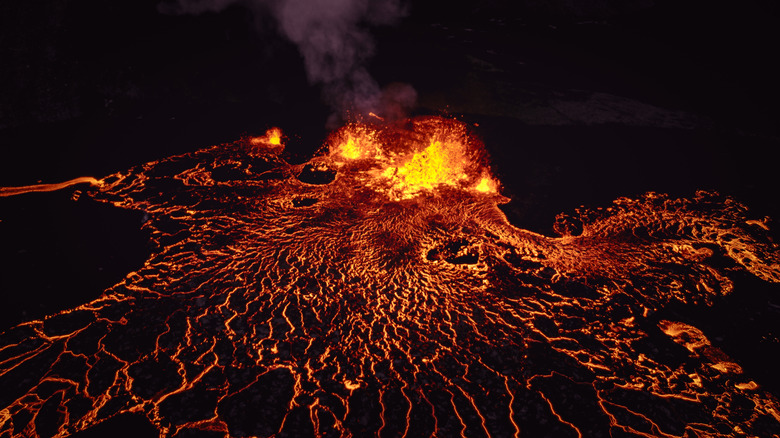Scientists say they’ve discovered a 400-mile chain of extinct and fossilized volcanoes beneath southern China. The volcanoes, the researchers claim, were likely formed when two major tectonic plates collided hundreds of millions of years ago when the supercontinent Rodinia broke up.
The researchers published their findings in a new study featured in the Journal of Geophysical Research: Solid Earth. The discovery could help lead additional efforts to study ancient volcano arcs like this, which scientists use to learn more about how Earth’s crust formed millions of years ago.
Scientists discovered another set of volcano arcs along the edge of the Yangtze Block — a major tectonic plate that resides beneath southern China — back in 2021, and the authors of the latest study were curious if there might be other arcs found deeper inland. And it seems their gamble paid off, as Zhidong Gu, a senior engineer at PetroChina, and other colleagues found more than 400 miles of extinct, ancient volcanoes deep below the surface.
A surprising find with ancient implications
These findings were ultimately a bit of a surprise to Gu and the rest of the researchers, as most volcano arcs tend to form narrower belts along the continental margins. However, the arc found here appears to be much wider, which the researchers say could be due to a different style of tectonics being found where they formed versus other parts of the world where volcano arcs have been discovered.
Regardless, the discovery will go a long way toward helping scientists understand more about how our planet has changed and evolved over the years, as well as how the crust of the Earth continues to be reshaped by tectonic processes. It also gives us a window into how volcanic activity could have wiped out much of Earth’s life in ancient days.
Researchers say that this region has been especially difficult to study, and this new discovery shows that the volume of magma activity may be greater than anyone previously thought. For now, the researchers dated the volcanic rocks detected in their studies to have formed between 770 million and 820 million years ago. They aren’t the oldest rocks on Earth by any means, but they still open a new door into an ancient time that scientists and historians have been struggling to find more details about.

